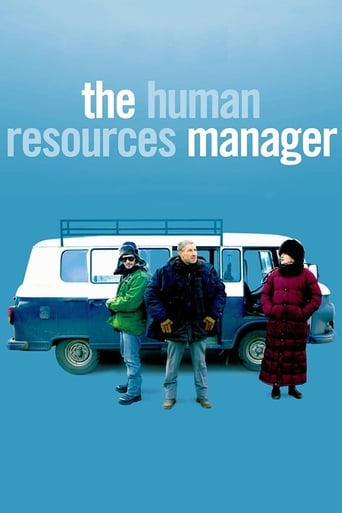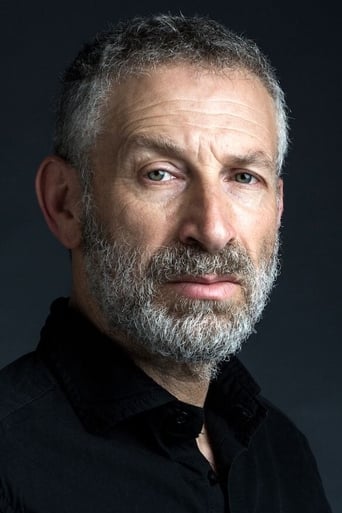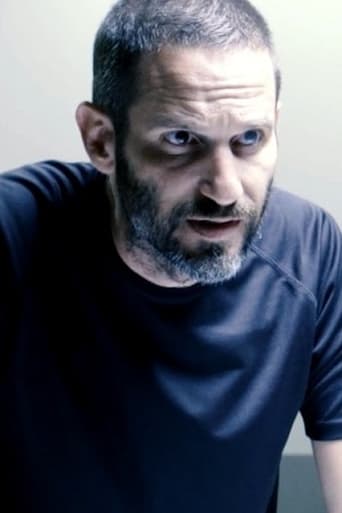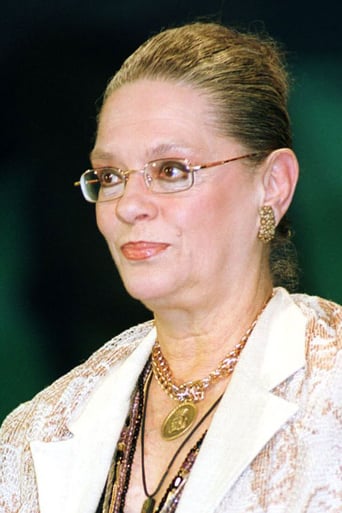Mjeteconer
Just perfect...
Smartorhypo
Highly Overrated But Still Good
Marva-nova
Amazing worth wacthing. So good. Biased but well made with many good points.
Cassandra
Story: It's very simple but honestly that is fine.
dromasca
The Hebrew name of the film is a little longer than the one chosen by the distributors for the English version. It reads 'The Mission of the Human Resources Manager' and actually the word used is 'shlihut' which has a wider significance - it means not only mission, but also the acts of performing an important duty, or of being a messenger for important news. The news in this case are about a death, but the film touches only marginally the reasons and the absurdity of that death, and deals more about how the people who remained in life cope with the disappearance and how this impacts their lives - including the one of the messenger.Based on a novel of AB Yehoshua the film tells the story of the aftermath of a terror attack, one of these crazy suicidal acts that took place during the second intifada about a decade ago. One of the victims of the attack is identified quite lately as a Romanian woman working a manual job in a bakery in the town. A beautiful woman whose face we know only from a photo and later from a short film made on a phone, whose body nobody came to claim or identify because she was one of the thousand of foreign workers who come to Israel and perform hard and low paid works nobody else wants to do in order to support their families back home. The duty to take the coffin with the body home to Romania, and try to compensate the family there falls on the manager of the human resources (the absurdity of the terminology is so well exposed by this film), a man who has problems of his own - solidly acted by Mark Ivanir, an actor I did not notice until now - he works more for the TV and games industry in the US, here he gets an opportunity to make a serious role in an Israeli film, and does it fine. What results is a trip in unknown territory for the Jerusalemite clerk and the journalist accompanying him (Guri Alfi, better known here as a stand-up comedian), a clash not only of two different cultures and but also of different approaches to life and death.The film is not bad, but it's a missed opportunity. Made in 2010, a year when both the Romanian and Israeli films industry were riding high on waves of success, it could have brought together some of the best in the two schools of cinematography - the Israeli dramatic school of political cinema which after decades of avoiding the tough questions raised by the Israeli-Palestinian conflict succeeded in a few film that take a sharp and uncompromising look at the issues and the Romanian minimalist realism which looks back to the Communist era and the transition that followed, and also to the contemporary chaotic situation in Romania not only with anger, but also with humor and especially with human understanding. Amazingly, director Eran Riklis' style and place in the Israeli cinema fits rather well the Romanian cinema style. The problem lies in the folklorist approach taken in dealing with the Romanian reality. If the Israeli team would have taken a local director as consultant, they could have maybe avoided some of the stereotypes of the script. I should say that the Romanian actors do their best to fill in the holes of the story on this respect, but this is not always enough. Even so, it's a pleasure to see great actors like Irina Petrescu (a Romanian legend) or Gila Almagor who can be considered as her Israeli counterpart on the same cast (although they never meet on screen). And more than all, this is the last and final role in the career of Rozina Cambos. Despite its flaws Riklis' film has enough good parts to make for an interesting viewing.
filmalamosa
A suicide bomb victim's body lays unclaimed. The only thing known about her is where she worked--a large mechanized bakery.Turns out the bakery had fired her and now the press coverage doesn't look good for them. She was fired by a supervisor who fell in love with her and he was worried about the personal problems this unrequited love would cause.A weasel like journalist is trying to smear the bakery and they want to make sure that doesn't happen.The owner of the bakery also wants to do the right thing and has her human resources manager accompany the body back to Romania where the dead woman had a son and family.But...where would she really have wanted to be buried??You get to see a very authentic view of urban and rural Romania the part the tourist brochures don't show.The one part I did not understand is why she is a Greek Orthodox? Must have been ethnically Jewish although if covered I missed that part.The film is different and really good. Highly recommend it.
Red-125
The Human Resources Manager (2010), directed by Eran Riklis, is a film that starts off with the death of a Romanian immigrant in Israel. Although her death was not work-related, an investigative reporter--"The Weasel"--decides to publicize the case as an example of the cold-hearted approach of the company to its employees. (The company officials did not realize that she had died.) To counteract the negative publicity, the human resources manager is sent to accompany the body to Romania, and to arrange for burial. Of course, The Weasel shows up in Romania as well.Naturally, complications ensue. The complications make up the real plot of the film. The HR Manager is out of his element, doesn't speak Romanian, and is a Jew among Christians. He is trying to act in good faith, but personal problems, mechanical problems, and religious problems continue to obstruct progress.This isn't a bad film, but it's somewhat formulaic, and not always very funny. The acting is good, especially that of Mark Ivanir as the HR manager and Guri Alfi as The Weasel. There are some humorous moments, but the grim, unhappy moments outweigh them. This wasn't really a memorable film for me. It's worth seeing if it comes your way, but I wouldn't seek it out. We saw it at the excellent Rochester Jewish Film Festival, in the wonderful Dryden theater at George Eastman house. However, there's no reason it shouldn't work as well on the small screen.
Nozz
I don't know how much of what the movie omits is in the novel, but as the movie stands, we have several people each of whose lives has taken a turning-- not always for the worse, but usually-- and the details of that past turning are vague. The full Hebrew title would translate as THE MISSION OF THE HUMAN RESOURCES MANAGER, and his mission takes him to the boondocks of Eastern Europe to meet the bereaved relatives of a murdered employee. It's a big contrast between familiar surroundings and exotic ones, and the contrast may be lost to viewers for whom the place where the action starts, Israel, is exotic anyway. Another thing lost is the word translated as MANAGER in the title. The word in the Hebrew title doesn't really mean "manager," it means "the appointee responsible." The protagonist (Mark Ivanir carries the movie well in this role) has less authority than he would like, and the plot takes him on a shaggy-dog road trip from one misfortune to another, becoming somewhat more light-hearted and philosophical along the way and showing many moments of altruism. There are some improbabilities and a few minor and unfortunate clichés, such as the fellow who-- like so many characters beset by a crisis in a movie-- had been trying to give up smoking. But the movie has momentum, the minor characters are colorful, the music is enjoyable, the sad and comic sides are well balanced, and I for one was left with a hankering to read the book. In English, by the way, the book is called A WOMAN IN JERUSALEM.






